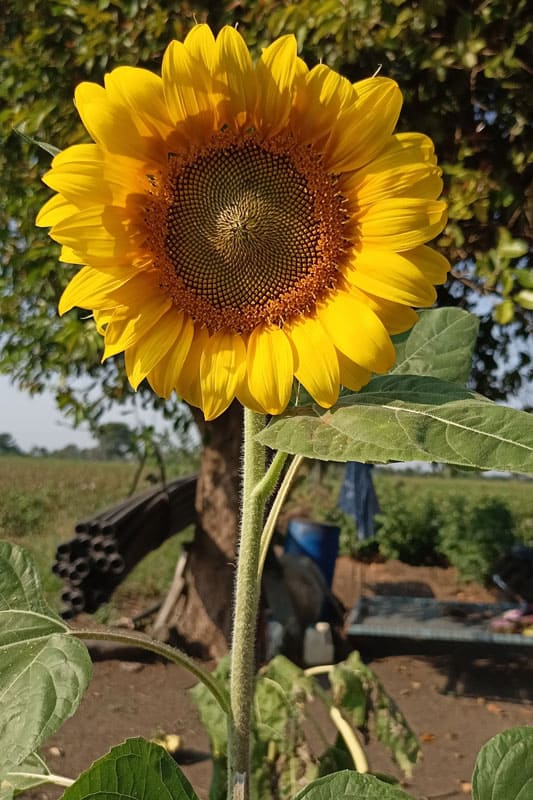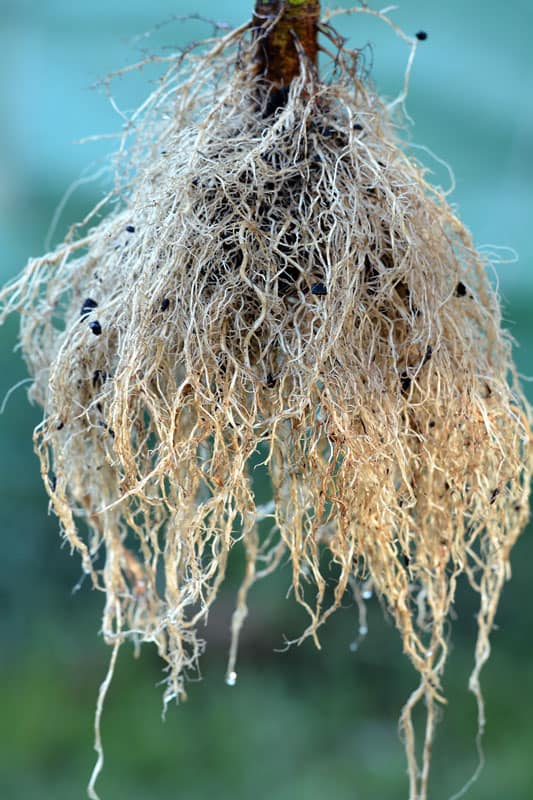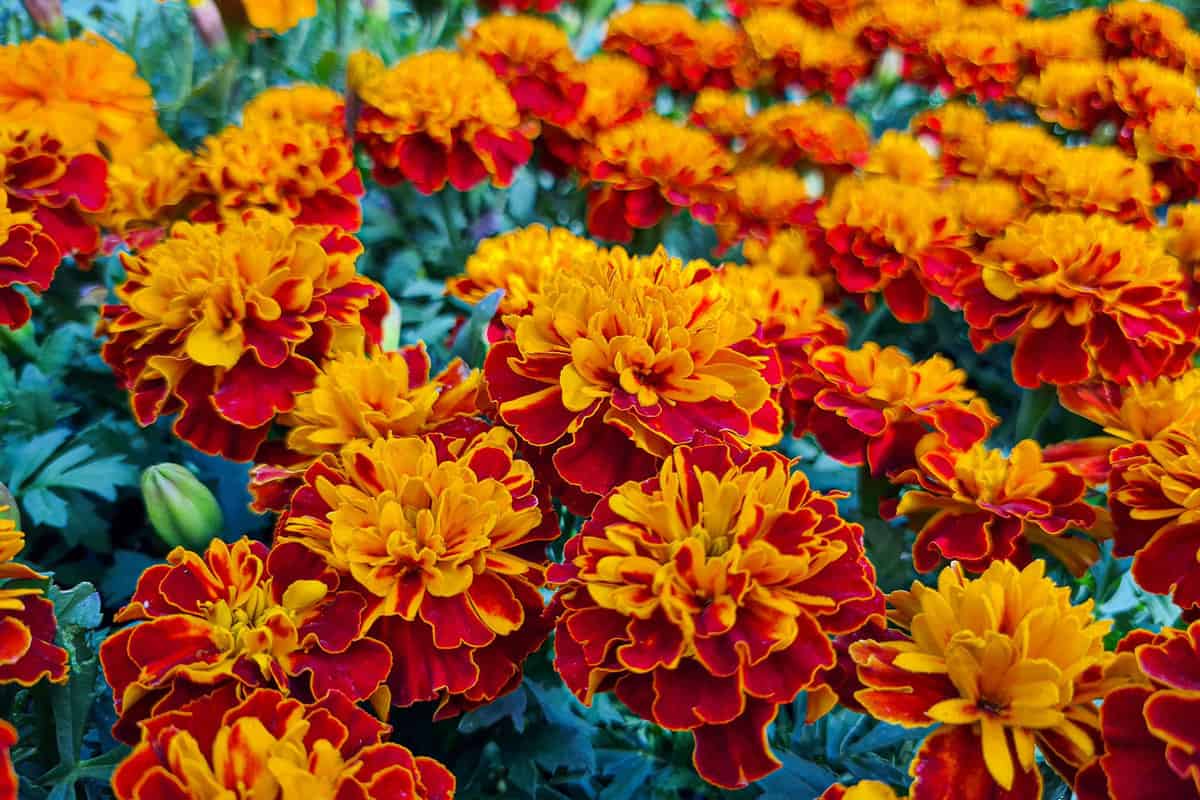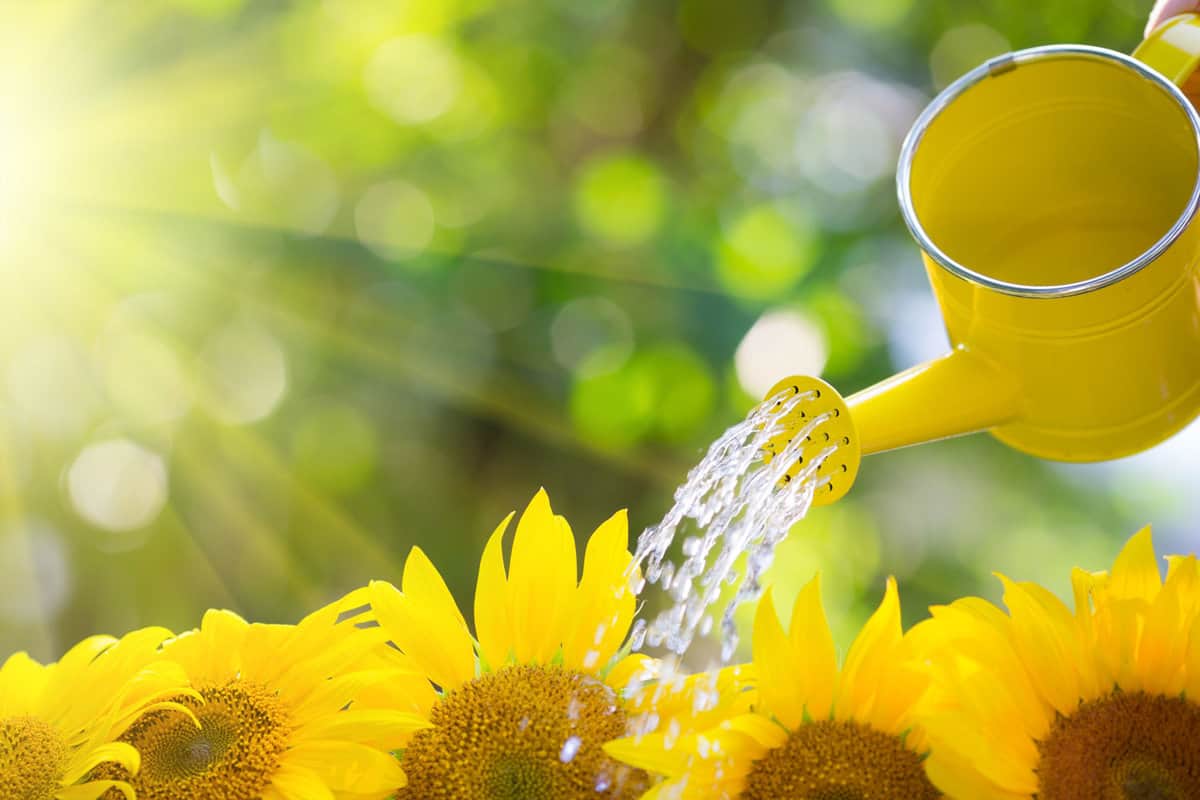Sunflower plants are a popular choice among gardeners and farmers for their vibrant flowers and the ability to attract pollinators.
However, a concern that often arises is whether sunflower roots can be harmful to other plants.
In some cases, sunflower roots and other parts of the plant may release chemicals that could potentially hinder the growth of certain plants nearby.
One such chemical is found in sunflower seed hulls, which has been found to hinder germination and growth in some plants.
With this in mind, it is crucial for gardeners and farmers to be aware of the potential impact sunflowers can have on surrounding plant life.
Understanding how to strategically plant sunflowers with companion plants can help minimize any adverse effects while still enjoying the benefits these beautiful plants bring to any garden or field.
Sunflower Roots: An Overview
Understanding the unique characteristics of sunflower roots can be highly beneficial.

Not only are their growth and structure distinct, but these roots also play a key role in the plant's allelopathy.
Growth and Structure
Sunflower plants have a robust and deep root system, which helps them extract water from depths that are not often reached by other crops.
They have an effective root depth of around 4 feet, but can even remove water from below this depth. These deep roots enable sunflowers to tolerate droughts better than many other plants.

The sunflower root system consists of a primary taproot and several secondary roots.
This network of roots allows the plant to effectively absorb nutrients and water from the soil even in challenging conditions.
Allelopathy and Sunflowers
Allelopathy is a natural phenomenon where a plant releases chemicals that can inhibit the growth, survival, and reproduction of other plants in the vicinity.
This can give the allelopathic plant a competitive advantage in obtaining resources such as water and nutrients.

Sunflowers are considered allelopathic plants to some extent. They release chemicals from their roots and leaves that can be harmful to other plants.
The allelopathic nature of sunflowers mostly affects specific types of plants, rather than impairing general plant growth.
Gardeners and farmers should consider sunflower allelopathy when planting sunflowers in proximity to other crops.
By understanding the growth and structure of sunflower roots as well as their allelopathic properties, gardeners and farmers can make informed decisions and optimize their plantings for maximum productivity.
Effects on Surrounding Plants
Sunflowers are beautiful and versatile plants, but they can also have an impact on surrounding plants due to their root system.
In this section, we will discuss how sunflower roots can potentially affect other plants through nutrient competition and allelopathic influence.
Nutrient Competition
Sunflowers are often regarded as drought-tolerant crops due to their deep root system, which allows them to access water from depths not reached by most other crops.

However, this can lead to nutrient competition with neighboring plants, as sunflowers may outcompete other species for water and essential nutrients.
Note that good agricultural practices and careful crop planning can mitigate the risks of nutrient competition.
By considering factors like proper spacing, sunflower growth stages, and the needs of surrounding plants, it is possible to reduce adverse effects on neighboring crops.
Allelopathic Influence
Apart from nutrient competition, sunflowers also exhibit allelopathic properties, which means they release certain chemicals that can inhibit the growth or germination of other plants.
These chemicals are present in all parts of the sunflower plant, including the hulls of sunflower seeds.
It has been suggested that sunflower seed hulls should not be used as mulch or in compost, as they contain compounds that can harm surrounding plants and kill grass.
Note that the actual impact of allelopathy depends on various factors, such as the concentration of allelopathic substances, plant types, and environmental conditions.
Sunflowers in Mixed Gardens
Sunflowers can be a beautiful addition to a mixed garden, providing height, color, and habitat for pollinators.
However, there are some considerations to keep in mind when including sunflowers in your garden.
Plant Companions
Sunflowers can coexist with a variety of plants, offering shade and support for smaller varieties. Some good companions for sunflowers include zinnias, cosmos, and marigolds.

These plants are known to attract beneficial insects and help ward off harmful pests.
But it is important to note that sunflower seed hulls contain a chemical that can inhibit seed germination and growth in some plants.
To avoid this issue, remove fallen sunflower seed hulls from your garden or avoid planting at-risk plants near sunflowers.
Spacing Considerations
Proper spacing is crucial for sunflowers' success in a mixed garden. They need adequate room to grow and not compete with other plants for nutrients and sunlight.

When arranging your plantings in rows, ensure the seeds are placed approximately 6 inches apart within each row, and buried 1 to 2 inches deep.
If your soil is sandy in texture, it's advisable to plant the seeds slightly deeper.
Once the seedlings have sprouted, thin them by removing alternate plants, maintaining a spacing of 12 to 15 inches between the remaining plants.
Furthermore, ensure rows are spaced a minimum of 2 to 3 feet apart to promote healthy growth.
For smaller plants that won't compete for sunlight, try planting them around the base of sunflowers, creating a stunning garden design while preserving necessary growing conditions.
To learn more, check out this post: How Far Apart Should Sunflowers Be Planted?
Managing Sunflowers for Other Plants' Benefit
Sunflowers are beautiful and beneficial additions to gardens and landscapes. It is crucial to consider the impact of sunflower roots on nearby plants, as they can sometimes be harmful due to competition for resources.
Fortunately, certain management techniques can mitigate this potential problem.
Watering Techniques
Sunflowers are known for having deep roots, which allow them to extract water from depths that most other plants cannot reach. This makes them drought tolerant.
Thus, it also means that they might consume water that would otherwise be available to other plants, causing them to struggle.

To mitigate this competition for water, try creating a watering schedule that targets specific plants in your garden based on their individual needs.
Provide ample water to plants that need it while ensuring that sunflowers do not hog an unfair share of the moisture.
Utilizing drip irrigation systems or soaker hoses can help direct water to plants that require more hydration, ensuring that your sunflowers share water resources effectively with their neighboring plants.
Fertilization Tips
Sunflowers are known for being sensitive to high concentrations of various fertilizer salts and can take up substantial amounts of nutrients from the soil as they grow.
Thus, managing the fertilization of sunflowers while considering other plant's nutrient needs in the area is important.

When planting sunflowers in your garden, consider the recommended rates of nitrogen (N) and other essential nutrients for sunflowers, so as not to use too much fertilizer.
Also, provide a balanced mix of nutrients to the soil. This helps ensure that your sunflowers' roots do not starve other plants of the essential elements they need to grow.
Additionally, organic fertilizers like compost or manure can be added to boost soil fertility and ensure that there are enough nutrients available for all plants in the surrounding area.
These will slowly release their nutrient content over time, ensuring a healthy living environment for the sunflowers as well as their neighbors.
You may also like: What’s the Best Soil for Sunflowers?
In Closing
Sunflower roots are generally not harmful to other plants, but it's important to consider some factors in their interactions.
Overall, sunflower roots themselves are not inherently harmful to other plants, but care must be taken when planting them in a garden to avoid unintended competition for resources or adverse allelopathic effects.
With proper planning, sunflowers can coexist with other plants, creating a beautiful and diverse landscape.
